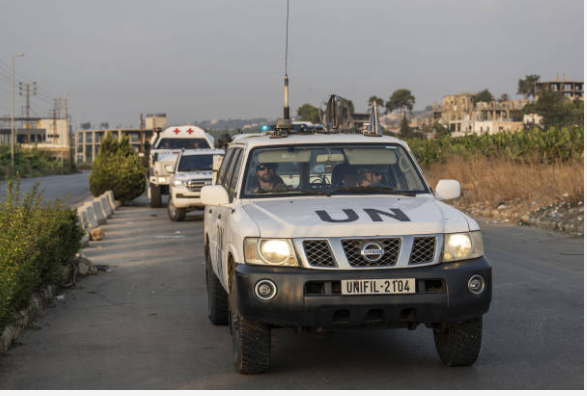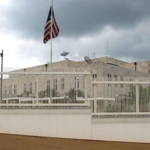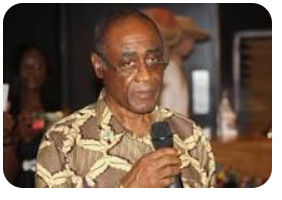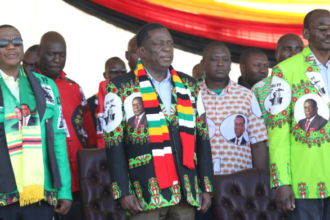By G. Al  Smith
Peacekeeping missions have played a pivotal role in maintaining global peace and security since the founding of the United Nations. However, in the late 20th century and beyond, peacekeeping operations have faced unique challenges and changes in response to shifts in the international landscape.
In times of peacekeeping operation, several incidents attract the attention of the humanitarian organization. During these operations, many innocent lives are lost and some human rights are violated by both the peacekeepers and rival belligerent forces. This has increasingly made humanitarian assistance to become central to the mandates, strategies, and objectives of peacekeeping operations. Hence, some issues become the central focus of humanitarian operations.
The protection of Civilians is the role of the United Nations during their peacekeeping operations. The UN ensures that the lives of civilians are protected from any form of endangerment. This is one of the focuses that humanitarian aims at in peacekeeping operations. The United Nations peacekeeping operations are therefore supposed to be conducted in a manner that will ensure the safety and well-being of non-combatants (James & Wells, 1993)
Human Rights and the Rule of Law are also very vital components. Peacekeeping missions often include components dedicated to monitoring and promoting human rights and the rule of law. This is essential for preventing human rights abuses and ensuring that justice is served. The emphasis on human rights reflects the commitment to upholding the dignity and freedom of all individuals affected by conflict.
Conflict resolution, the main aim of peacekeeping operations emphasizes the need for the engagement of diplomatic and mediation efforts, which are aimed at resolving conflict peacefully. This is aimed at reducing violence that may lead to further suffering of innocent civilians and compromising the economy. By facilitating negotiations and dialogue, peacekeepers work to prevent escalation and protect civilians.
Humanitarian assistance through humanitarian organizations also emphasizes providing support to the victims of war and the most vulnerable groups. War normally leads to the destruction of property and displacement of the population. Hence, humanitarian agencies have a duty of care to provide aid, food, shelter, and any support that will be needed during the operation. The collaboration of the humanitarians and the United Nations ensures that basic needs are provided to civilians to ensure their well-being.
Responsibility to Protect or R2P is a concept that places a moral obligation on the international community to intervene when states are unable or unwilling to protect their population from mass atrocities. The basic idea is for peacekeeping missions to be deployed to prevent genocides, war crimes, ethnic cleansing, and crimes against humanity. In some cases, some peacekeepers have also committed offenses that violate their mandate to protect.
Gender and Child Protection: in times of war the people that are greatly affected are the women and children. In most cases the women do becomes victims of war by being abused in the form of rape and sometimes end up receiving injuries that traumatize them for the rest of their lives. children on the other hand are normally abused sexually and, on many occasions, forced to move from their homes and drop out of school. hence humanitarian emphasizes the need for peacekeeping missions done by the United Nations the ensure that women and children become the first priority when protecting the lives of non-combatants (Huntington, 2012). Gender-based violence prevention and child protection measures are integrated into mission activities to safeguard vulnerable populations.
During peacekeeping operations by United Nations security agencies, in most cases it involves violence. These normally leave most of the property destroyed and people losing their homes and forced to stay as refugees (Egleder,2013). Hence humanitarian organizations do emphasize the Post post-conflict reconstruction that aims at restoring the destruction that was caused in the event of peacekeeping. UN normally takes part by giving financial aid for the rebuilding of schools, infrastructure, institutions, and communities to ensure that those affected by the peacekeeping missions get their lives back. In instances humanitarian organizations do advocate for the victims of the war to get compensated in cases where the peacekeepers violated their responsibility of protection.
Peacekeeping operations are adapting to address contemporary challenges such as asymmetric warfare, transnational threats, and cyberattacks that have significant humanitarian implications. These adaptations are vital to protect civilians and maintain stability in today’s complex security environment. By doing these they aim to prevent further wars that may arise due to such criminal acts.
During peacekeeping, humanitarian operations are often faced with lots of challenges, such as hostility from the host nations, and some of them end up being kidnapped as prisoners of war (Aksu & Aksu,2003). In some incidents, they end up dying while giving aid in places where bombing has occurred. In as much as they risk their love they are being criticized for being one-sided and this makes their work to be more challenging. Hence they emphasize the need for UN peacekeeping agencies to give them the resources and security that could protect them on the ground when offering assistance.
Humanitarian emphasis in peacekeeping operations is crucial to addressing the complex challenges and human suffering associated with armed conflicts. It reflects a commitment to upholding fundamental human rights and protecting civilians. However, the effectiveness of these efforts often depends on factors such as the political will of the international community, cooperation from host countries, and the ability of peacekeepers to adapt to evolving threats. Therefore, while the emphasis on humanitarian aspects is significant, it is an ongoing and evolving endeavor within the broader context of peacekeeping.
About the Author:

G. Al Smith is a Criminal Justice, Homeland Security, and Counter Terrorism Expert. Currently, He earned a Master of Arts in International Relations, and Global Security with a concentration in Conflict Resolutions at American Military University, He earned a Master of Science in Criminal Justice with a concentration in Homeland Security from Colorado Technical University. He also holds a Bachelor of Science in Criminal Justice with a concentration in Homeland Security Emergency Management from Strayer University and an Associate Degree in Criminal Justice from Everest College. He has been certificated by the United States Department of Defense and other Agencies, He has been deployed twice with the Northern Alliance Treaty Organization (NATO) Security Mission, US Department of Defense, He also provided Joint construction protection for the 44th United States Presidential Inaugural Grandstand.









